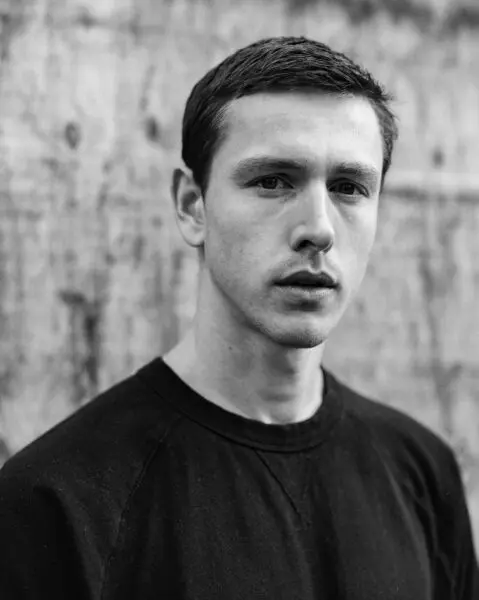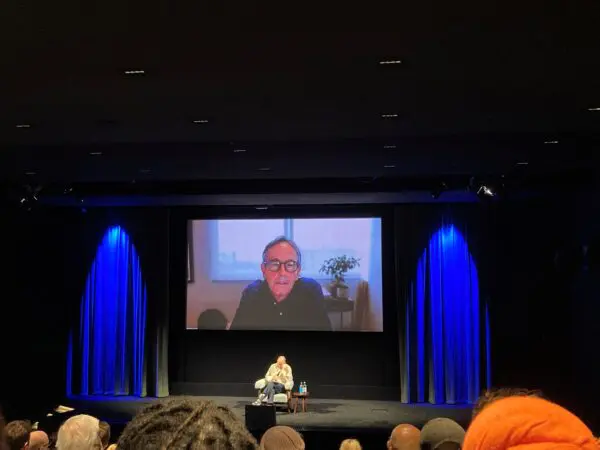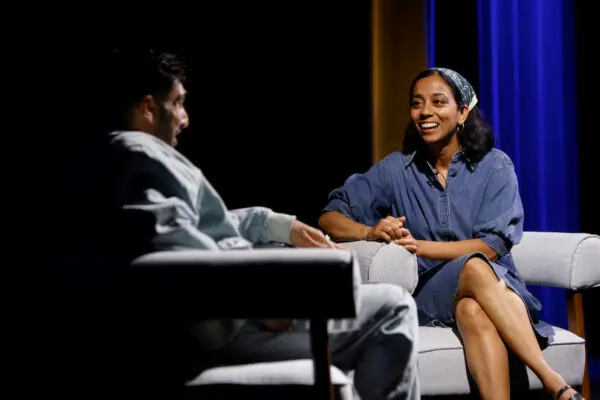What’s your earliest memory of cinema/film?
My dad used to take me to my local cinema in West Ealing with my brothers. It isn’t open anymore, but we used to go there regularly. I think my first film was a Ninja Turtles movie – I was a really big Ninja Turtles fan. I remember it was something to do with the family that was always really exciting… To me, it just felt magical. It felt like somewhere else, somewhere exciting.
Tell us a little about your journey into acting.
I really enjoyed drama at school and showed a lot of passion for it, [but] no one in my family was an entertainer or an actor, so there weren’t any examples close to me to show me that I could do it. It was a distant galaxy. I didn’t do very well in my A-levels, so took a year out to think about what I could do that was different. My uncle suggested I try acting, so we went through an adult community college prospectus and it had a part-time drama class, two hours a week. I thought, ‘I could do that, let’s see if I enjoy it.’ And I did, I liked it a lot.
The woman who ran that part-time course suggested I try a full-time one, so I auditioned for a one-year access level course at Richmond Drama School and got on. That’s where I became totally obsessed and fell in love with it. It’s where I met people who were as passionate as me.
I then found out there were other accredited drama schools that I could apply to, LAMDA, RADA and a few others. I could only afford to audition for two, so I auditioned for LAMDA and RADA. I didn’t get into either. I was devastated. There was nothing I wanted to do more and to not get into both… I didn’t know what I was going to do. One of my teachers at Richmond suggested I reapply. I thought I had to wait a year to apply again, but LAMDA [allows] you to re-audition in the same year. I didn’t mention it was my second audition, in case it was some kind of mistake. But I got a recall and then another recall, I think I got in after four auditions and studied there for three years.
Once my teacher said I should re-audition, I was like, ‘Yeah, why not?’ I had nothing to lose. Something he said, that I’ve held on to to this day, is that the first no isn’t necessarily the end. If there’s another way to push through then go for it. I’ve tried to apply that going forward.
What was your experience at LAMDA like?
It was great. I don’t subscribe to the idea that every actor needs drama school, but I did. I benefited hugely from going there and, fortunately for me, we had some amazing teachers at the time. I came out of it better off.
What did it feel like when you landed your first role?
First of all, getting a job is the best feeling, it really is. It was an incredible feeling because, by that point, I had done five years of going to school – part-time for one year, full-time for another and then full-time for three years at LAMDA. So after all that work, I was excited to be hired.
The first screen role I got was on quite a big Hollywood film, Red Tails (2012). It had so many amazing African-American actors on it that it served as a massive inspirational springboard for me when I came back to the UK. I felt very grateful but also had so much desire and hunger to do more. I only had a few scenes in that film, but that didn’t matter to me, because I got to experience it and hang around in that energy.
How do you deal with rejection? What’s your mindset?
Rejection is really tough, especially being an actor because it’s you walking into that room, your physical self. So when you’re told “no” again and again, it can be quite easy to think it’s personal. I’m still learning that to this day. The more experience I’ve had I’ve realised it’s really not personal a lot of the time. There are many other things that have nothing to do with your talent, and so it’s about trying to hold onto that and keep pushing. If it’s something you love – the way that I love it and have been obsessed by it – then you just have to keep going.
People only get to see the wins, they don’t get to see the ones you don’t get, which is so much more. The idea of a trajectory for me is hard to see because it just feels like I get some, I don’t get a lot, I get a couple and then I don’t get a lot, you know?
You’ve been part of the BAFTA Elevate programme since the summer of 2019. Do you feel enough is being done to tackle the issue of underrepresentation and inclusion?
It’s a valid question, but I think we arrive at the place where we want to be when the question doesn’t need to be asked any more. It is changing: I just did The Personal History of David Copperfield (2019) with Dev Patel, Rosalind Eleazar and others… There’s an argument to be made that a few years ago we wouldn’t have been considered to be in that film but, when you actually watch it, you realise how irrelevant race is. It’s just good and it works. It’s another take on the story and there’s nothing to say it can’t be done in this way. So, it is changing and hopefully it keeps getting better. I’m happy to be part of that change.
What key piece of advice would you tell your younger self?
There isn’t one route to success. As clichéd as that sounds, I think it’s a truth. Whenever I think about any of the really famous people, the icons who made it to the spotlight, often you’ll find that their journeys are totally different. Embrace your journey and don’t take that first rejection as the only option.








